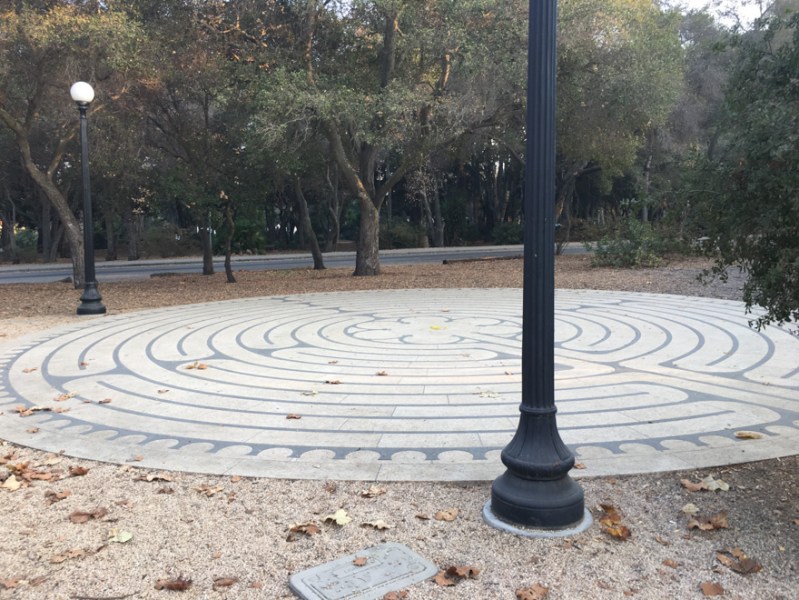An increase in options has allowed students across campus to turn to meditation and contemplative practices in order to manage stress and become more mindful.
One avenue for learning meditation practices on campus is the LifeWorks Program for Integrative Learning, which combines “scholarship, creative expression and embodied practices such as mindfulness and self-reflection” to “deepen [students’] educational experience,” according to its website.
The program started in 2013, when co-director Jonah Willihnganz said he began to observe increasing of stress in his students. They came to his office, he said, “not to talk about their academic work, but to talk about the pressures that they felt.”
“We began to feel that the options [for coping with stress] that students had at that time — [in] 2010, 2011 and 2012 — [were] either taking a psychology class that was largely theoretical, or going to Vaden and getting medicated and going in to therapy,” he added.
Willihnganz said he and other co-founders created LifeWorks as a third stress-relief option for students.
One LifeWorks class is Tools for a Meaningful Life, which was piloted last spring and is being offered to students as an official course for the first time this quarter. Along with five other instructors, Willihnganz teaches practices including meditation and improvisation to roughly 75 students.
“I’ve been surprised by how popular the class has been and how engaged the students are in the practices,” Willihnganz said. “Broadly, in American culture, there’s been much more attention to the benefits of mindfulness practices.”
Willihnganz also cited Stanford’s busy climate as a motivation for students seeking meditation.
”Silicon Valley and the Bay Area and Stanford are at a velocity,” he said. “[This creates] a hunger to learn how to manage that. [Stanford] could do a little bit more to prepare you all for just living in a very intense time.”
Veer Shah ’20 and Eric Singh ’20 both took Stillness of the Dunes, a LifeWorks class led by Andrew Todhunter and centered on contemplative practices and writing.
“Todhunter basically talks a lot about his own meditation practices and why he believes meditation helps with improving your daily life,” Singh said. “One of the things he really hones in on is living a life that is value-based. And he talks about how meditation really allows you to think about those values.”
Shah added that these values have been a part of his life for a long time. When he came to campus, he took Todhunter’s class to explore other forms of meditation.
“I’m Jain,” Shah said. “One of the centerpieces of Jain philosophy is meditation, but most of that centers around incantations, chants and prayer, so that’s something that I grew up with, something I’ve known pretty much all my life.”
Stillness of the Dunes features a four-day silent retreat, when students head into Death Valley for a long weekend of meditation and contemplative practices. Shah and Singh described the experience as influential.
“One of the things consistent meditation practice allows me to do is to take off my headphones, look around at the scenery, notice the sunlight on my skin, make me feel a lot more in the moment and in the present,” Singh said. “The way I felt after coming back from that retreat and coming back to Stanford really affected my life — I don’t think I’ve ever felt that way before.”
Shah said the retreat was “really, really pivotal” for him.
“I reached a point where I don’t think I’ve ever reached in my life before,” he said. “It’s definitely changed the way I think about meditation to a great extent because I primarily associated it with spirituality before, and to religion before.”
Central to the experience was the idea of slowing down, Singh said, adding that Todhunter “definitely wanted something where you’re not stimulated by everything.”
“When you have such a busy life at Stanford, the idea of meditation is very appealing in bringing balance, whatever that means to somebody,” Shah added.
“I do encourage and love that a lot of people want to get into meditation,” Singh agreed.
His said his advice for beginners is to “be patient with the process and understand why [you] are doing it.”
Contact Charlie Curnin at ccurnin ‘at’ stanford.edu.
